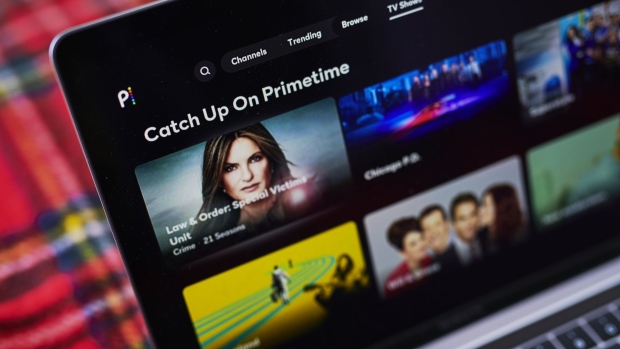Sep 18, 2020
NBC reaches deal with Roku over Peacock app, avoiding blackout
, Bloomberg News

NBCUniversal reached a deal to have its Peacock service carried on Roku Inc. devices, adding potentially millions of viewers after agreeing to share advertising revenue.
Earlier Friday, NBC had threatened to stop delivering content to more than 11 of its apps on Roku by Saturday morning, escalating a standoff with the company over its refusal to carry Peacock.
But on Friday afternoon, an NBCUniversal spokesman said the two companies had reached an agreement that would keep NBC’s apps on Roku and ensure that Peacock will gain a spot on the platform. A representative for Roku confirmed the truce, calling it “an expanded, mutually beneficial relationship.”
Terms weren’t disclosed, but Roku said the deal included “a meaningful partnership around advertising” -- a key element of the dispute. Roku had been seeking, among other things, a cut of the advertising inventory on those apps to sell on its own. Comcast Corp.’s NBC and AT&T Inc.’s HBO Max -- another service that has been frozen out from Roku -- rejected demands to share space for advertising on their streaming services.
Peacock and HBO Max, which both launched earlier this year, also have been kept off Amazon.com Inc.’s Fire TV. The situation prevented them from reaching millions of Roku and Fire customers, which use those platforms to watch TV.
“We are thrilled millions more will now be able to access and enjoy Peacock along with other NBCUniversal apps on their favorite Roku devices,” an NBC representative said. “Roku’s incredible reach will not only help us ensure Peacock is available to our fans wherever they consume video but continue to expand NBCUniversal’s unrivaled digital presence across platforms.”
The blackout threat had weighed on Roku shares Friday, with the stock closing down 2.6 per cent at US$160.47 in New York trading. It had been up 23 per cent this year through the previous close.
The standoffs have been a sign of how Roku, which has about 40 million active users, is flexing its muscles as the largest platform in the U.S. for aggregating streaming services.
Roku and Amazon together control about 70% of the U.S. streaming-device market, limiting the growth of any video apps that aren’t available on them.
Ad Conflict
In exchange for hosting an app with advertising, Roku typically takes 30 per cent of the ad inventory to sell on its own. NBC has promised to keep the number of commercials on Peacock under five minutes per hour, leaving little airtime to share with Roku.
The threatened blackout involved NBC-owned apps that come free to pay-TV subscribers who can log in to watch NBC News or Bravo. NBC’s deal with Roku for those apps had ended last week.
More than 15 million users have signed up for Peacock, which launched nationwide July 15.
In an interview with Bloomberg News this week, AT&T Chief Executive Officer John Stankey said he is “optimistic” that one of HBO Max’s disputes with either Roku or Amazon “will resolve itself in relatively short order.”






